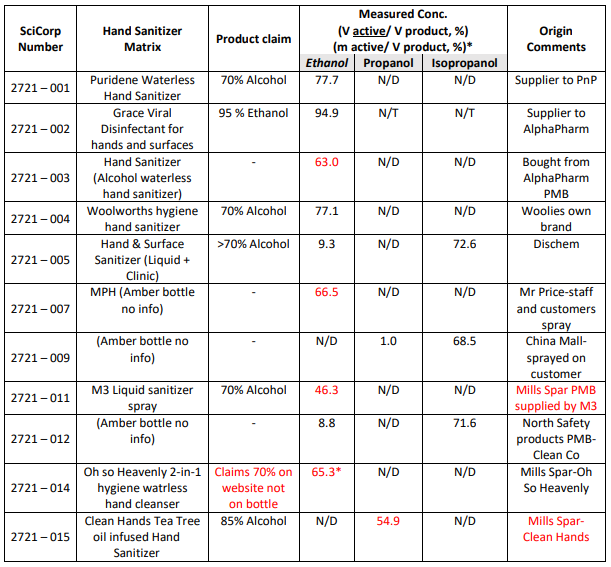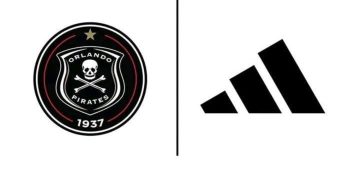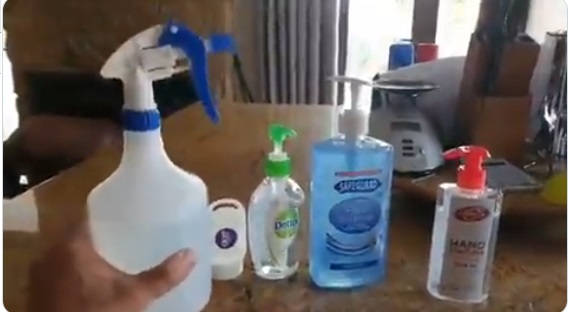Half of the hand sanitizers on the South African market do not meet the required standard says laboratory SciCorp.
SciCorp is a SA National Accreditation System (Sanas) accredited laboratory in KwaZulu-Natal.
Almost half of the sanitizers tested by SciCorp are not complying with the government’s regulation that alcohol-based hand sanitizers must contain no less than 70% alcohol.
Of the 11 hand sanitizers tested by SciCorp Laboratories in May: nine of them were bought from retail stores in the Pietermaritzburg area and two were samples of sanitizer sprayed on customer’s hands at store or mall entrances.
The lab tested for three forms of alcohol: ethanol, propanol, and isopropanol. All but one of the store-bought samples claimed to contain more than 70% alcohol; one made no claim at all.
Five of the 11 samples were found to contain less than 70% alcohol.
Sebastian Ridley, of SebSmith Trading, which distributed the M3 with a label saying “70% alcohol”, but found to contain just 46.3% ethanol said they will be doing their own testing investigation.
After being confronted with the results, Arthur Stamatis of Clean Hands said they would remix the bottles and donate them to charity. Clean Hands Tea Tree Oil-infused sanitizer, was found to contain just 54.9% propanol, while saying to contain 85% alcohol.
One of the products that did not meet the required standards was used to sanitize shoppers’ hands at a clothing store.
Among those that met the requirements were Woolworths’ own brand and sanitizers supplied to Pick n Pay and Dis-Chem.
A microbiologist who spoke to journalist Wendy Knowler said sanitizers not meeting the required standards could result in a serious public health threat during this pandemic.
The other three products in the test sample had between 60% and 70% alcohol:
- The sanitizer sprayed on customers’ hands at the entrance to Mr Price Home in Liberty Mall contained 66.5% ethanol;
- Oh So Heavenly 2-in-1 hygiene waterless hand cleanser had 65.3% ethanol; and
- A product labelled simply Hand Sanitiser, and sold at a pharmacy, had 63% alcohol.

SciCorp Laboratories’ business development director Adrian Barnard told the publication they did not test the 11 samples for methanol in May due to budget constraints, as separate tests had to be run for each ingredient.
Read: Woman’s hands burnt by fake sanitizer sprayed by local supermarket










